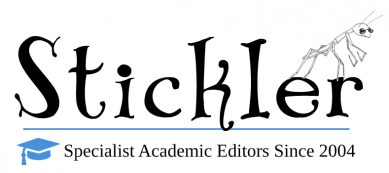In the dynamic realm of academia, where knowledge and ideas flourish, networking is a cornerstone of professional development. Beyond the lecture halls and research laboratories, connecting with peers, mentors, and experts holds immense value. This post highlights just some of the reasons why networking is vital, and how it can shape not only your academic journey but also your future career.
Knowledge Exchange and Collaboration
Networking in the academic world entails more than just exchanging business cards; it’s about exchanging ideas, perspectives, and insights. Engaging with fellow scholars, attending conferences, and participating in seminars open doors to diverse viewpoints, sparking intellectual discourse that can drive innovation and breakthroughs in your field. Collaborative research projects often spring from chance encounters, leading to interdisciplinary solutions that may not have been possible in isolation.
Mentorship and Guidance
Navigating academia can be complex, especially for those just starting out. Establishing connections with experienced individuals can provide a channel for invaluable guidance. Mentors offer insights on research methodologies, publication strategies, and career choices, helping you make informed decisions. Their mentorship can significantly impact your academic trajectory, accelerating your learning curve and personal growth.
Access to Resources
Networking extends beyond human connections; it grants access to resources that can bolster your academic pursuits. Through networking, you might gain access to exclusive research databases, funding opportunities, specialized workshops, and cutting-edge technologies. Collaborative projects can also result in shared access to equipment, reducing the financial burden on individual researchers.
Exposure to Different Perspectives
Academia thrives on diversity—of ideas, perspectives, and cultural backgrounds. Networking exposes you to scholars from around the world, enriching your understanding of various viewpoints. This exposure fosters cultural competence and equips you to address global challenges through a well-rounded lens.
Conference and Seminar Participation
Conferences and seminars are hubs of intellectual exchange, drawing experts and enthusiasts from various fields. Participating in these events not only allows you to present your research but also offers opportunities to engage in discussions, receive feedback, and forge connections with fellow attendees. These interactions can result in collaborations, joint publications, and lasting friendships.
Career Advancement
Networking is a powerful catalyst for career progression. Well-connected academics are often able to stay abreast of job openings, research positions, and funding opportunities that have not been widely advertised. Personal recommendations from within your network can carry significant weight in selection processes. Additionally, building a reputable online presence through platforms such as LinkedIn can enhance your visibility and attract potential employers or collaborators.
Staying Abreast of Trends
Academic disciplines are in constant flux, with new research, methodologies, and technologies emerging regularly. Networking keeps you up to date with the latest trends and advancements. By engaging in conversations with experts, you can gain insights into emerging research areas, technological innovations, and novel approaches that could influence your work.
Final Thoughts
Networking in academia is more than a social activity; it’s a strategic investment in your personal and professional growth. By fostering connections with peers, mentors, and experts, you open doors to collaboration, mentorship, and resource-sharing that can shape the trajectory of your academic journey. The benefits of networking extend beyond the academic realm, positively influencing your career prospects and enriching your understanding of the broader intellectual landscape. So, as you navigate the world of academia, remember that the bridges you build today can lead to the discoveries and opportunities of tomorrow.







